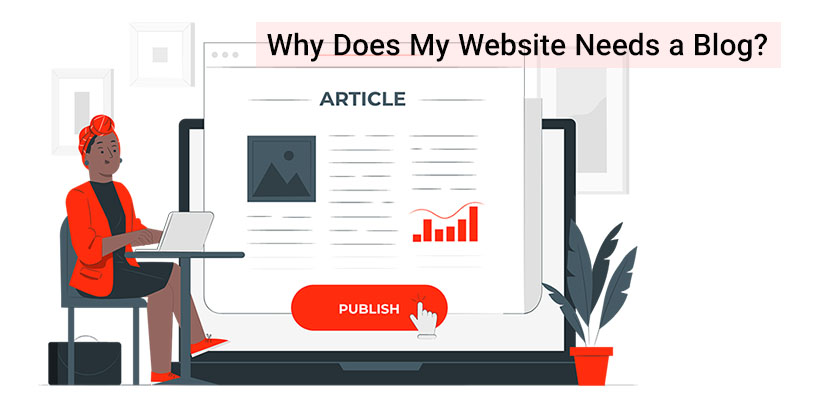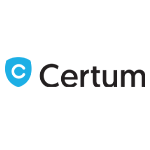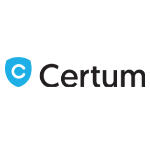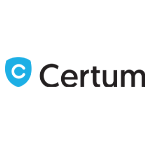
Many individuals are looking for ways to increase their online presence. While some of the sought-after methods are to start blogs, however, many people aren’t aware of what a blog is, and some who are aware, ask themselves, what does my website need a blog?
When blogs first began to appear in 1994, people were using them mostly to write about their personal lives, which included their personal experiences and interests. Today, blogs are an essential part of the online marketing strategy for businesses and are among the most lucrative career options for individuals.
The appearance of blogs has evolved significantly in the past. Bloggers can now incorporate numerous plugins and widgets on their blogs, like feeds from social media as well as a contact form or even an author profile.
In this article, we’ll discuss types of a blog, the difference between a blog and a website and most importantly, what is a blog and how does it work?
What Is a Blog for a Website?
The term “blog” (short in the form of “weblog”) is an electronic journal (also known as a site run through a group, an individual or a company that frequently provides up-to-date blog posts (blog posts) about a subject. It provides information in reverse order, and the writing style is informal or informal style.
What Is a blog post?
The blog is a distinct website page on your website which focuses on a particular area that you blog about.
For example, suppose you create your own fashion blog on your online store. A blog post could be entitled “The Best Fall Dress for 2019”. It is a link to the topic of your blog in general (fashion) but additionally addresses a particular area (fall shoe styles).
First, let’s answer, “why does my website need a blog”? Well, blog posts can help you get ranked in search engines for a range of keywords. In the example above, the blog post you write could help your business get a position in search results for “fall dress”. If someone is looking for a fall-themed dress and finds your blog, you have the ability to let them access the rest of your business’s website. They may choose to click “Products” after reading your blog post and then check out the clothes that your business sells.
Why Does My Website Need a Blog?
1. To Help your Business on Search Engines
A typical business will utilize a blog to aid your website’s rank in search engine results. You are able to use SEO strategies or even paid advertisements to ensure that your site gets on the first page of Google; however, an effective, long-term option is to implement different types of blogs.
Consider how your company will rank in search results through a blog; let’s begin by presenting an example. Let’s say you’re employed by a Web design company with a very small web presence.
You decide to spend the initial year writing and publishing regular blog posts with content that connects the web’s design. In time, your website’s traffic grows, and other businesses hyperlink to your website to find information on web design. If this occurs, Google recognizes your company as a trustworthy source of web design-related information. In the end, your blog’s articles begin to appear on the first page of Google for phrases such as “web design”, “website builder,” as well as “e-commerce website”. Keep in mind there are the best blogging platforms you can use in order to achieve better results in SEO, and if your website is hosted on WordPress, you also need to make sure that you buy the fastest WordPress hosting.
2. To Provide Information and Turn into an Expert in the Field
In 2006, Boston native Matt Kepnes quit his job and set off to travel across the globe. The traveler documented his experiences on his blog, which is now famous.
After about a year, because of his tireless blogging efforts and SEO techniques that helped him get a position on Google, he started making $60,000. Matt also wrote e-books and made use of affiliate and sponsorship marketing channels to earn money.
Today, Matt’s blog draws 1.5 million people a month and generates an estimated $750,000 a year. He’s becoming a well-known authority in the field of travel.
If you’d like to be recognized as an expert in the area that you are interested in, from blogging to fashion or fitness, then you could, and often, it begins with creating a blog. And this is the main difference between a blog and a website.
3. More Traffic and More Sales
There’s a limit to how much traffic you can draw from the homepage or the About Us page of your business’s website. Naturally, these pages are essential for those who are interested in your product. However, they typically will not attract attention from the top of the funnel. That’s why the best blogging platform in 2023 is WordPress yet again.
Your blog could be an overall resource for your site’s visitors, even before they are willing to buy from you. A fast WordPress website hosting, helps your blog on the WordPress platform to experience better performance.
4. To Build a Community Online
At a minimum, you could make a blog that allows you to interact in an internet-based community with people who share the same interest. You could start an online food blog and invite users to post their favorite recipe ideas with you.
Or, you might create a blog that is focused on DIY projects. You share the fun DIY projects you’ve worked on at home, and you encourage visitors to post their DIY tips.
How To Start a Blog for My Website

1. Choose your Target Audience
When you’re launching your own blog, you need to identify your primary readers. Who is the audience you’re creating your blog for? Who do you envision reading your blog’s content? Before you begin, it is important to think about your niche and the topics you’ll be covering and the reason for it.
The process of brainstorming your audience’s needs is like creating an individual buyer profile for your business. In addition, it gives you an idea of the kind of content you’d like to create.
2. Create Content Ideas Regularly According to Your Target Market
When you’ve launched an online blog, you’ll want to create quality, consistent content regularly. It’s not simple. Making content can be a lengthy job. It is essential to ensure that your content is something viewers would like and could help your SEO. More about that in a moment.
When you are beginning to think of content ideas, take a look at what your competition is up to. Check for areas in their writing that you could complete. Also, conduct SEO research to confirm that people are looking for and are interested in the subject you wish to cover. Tools such as SEMrush, Google Keyword Planner as well as Answer The Public can help.
3. Content Management System (CMS).
To create the blog you want to create, likely make use of a CMS or, in simpler words Content Management System. The CMS is software that you can utilize to design and manage your website, as well as publish your blog on your website. You’ve probably heard of CMS such as WordPress and Wix, along with many other best blogging platforms that you can use.
If you don’t own a website at the moment, it’s best to select a CMS with the capability to host blogs. In addition, if you decide to go with WordPress, it’s best and highly recommended that you buy web hosting that is specifically designed for WordPress. If your site already has a website, look into whether it comes with blogging features built-in. If not, then you’ll require a CMS which integrates with your site or opt for a completely new CMS entirely.
4. Develop a Blog Strategy as well as an Editorial Calendar
Similar to establishing an enterprise, you shouldn’t build a blog with no strategy in place. The strategy you choose should address questions such as:
- Why does my website need a blog?
- Who do you want to target?
- What kind of content will you create?
- When will you be posting?
- Where do you plan to promote your content?
In the end, you must be able to establish a mission, vision and goals for your website.
Create an editorial calendar that will keep you in order and on the right track. The calendar will allow you to keep track of what content is due, check that your writers are meeting deadlines and ensure you have enough ideas for content to last for the long term.
5. Create a Structure
When writing blog posts, you need to think about the structure of your article. For example, are you making use of subheads to break up the content so that it’s easy to understand? Do you use bullet points or images that make the content easy to read? These are essential elements that will keep your readers engaged on the page.
In addition, you should ensure that you’re using call-to-action (CTAs) that provide the reader with the information you’d like them to do the next time. This is the way to earn money and generate leads through your blog.
6. Learn to Become Proficient in the Field of Marketing as well as Advertising Your Blog
Another aspect of blogging is advertising and promoting your blog’s posts. It’s similar to the old saying, “When the tree falls in the woods, and there’s no one around to listen, will it make sounds?”
So, when you post a blog article and nobody reads it, will it have a positive effect on your business or your brand? Most likely not. So, you’ll need to advertise your posts. Social media as well as SEO, your website or even your email newsletter to connect with prospective and current customers.
7. Find out more about SEO
As we said earlier, you want your readers to visit your blog and read the posts. One method to achieve this is to increase organic traffic via SEO if you’d like your blog to become successful. Learn how to search for keywords and how rank on the search engine results, as well as how to develop your SEO strategies. In addition, besides the SEO strategy that you have to develop, you need to have the fastest WordPress hosting in case you are using WordPress CMS, which is amongst the easy blog platforms available.
8. Utilize Different Blog Post Formats
Your blog’s posts must be entertaining for anyone who reads them. This is particularly for those who are avid readers of every blog post. If you have active readers and advocates for your website, it is important to utilize various styles of blog posts to ensure that your blog does not become boring. Think about using how-to posts and list-based posts, as well as the power of thought.
9. Repurpose Content from Previous Years
Making blog posts on a regular basis isn’t easy. However, you don’t need to create a new blog post every time you post a blog. It is possible to update your blog posts to ensure they are up-to-date and complete. You can also use any other content you have; for example, you have a YouTube podcast or video and then repurpose it into a blog article.
10. Conduct a Competitive Analysis
To get to know your audience to understand your audience, conduct a competitive analysis of your blog’s top competitors. This will allow you to identify trends, highlight any gaps in the content of your niche, and offer you suggestions on topics to cover and ways to market your blog.
A competitive analysis will aid in the development and refinement of your own blog’s strategies.
7 Blog Types
Now that you know the meaning behind blogging and what factors make the blog effective, let’s talk about the seven kinds of blogs.
- Personal blog: A blog of this type typically functions as an online diary in which the blogger expresses his opinions and thoughts but is not always aiming to attract a particular audience or sell a product. Personal blogs may cover a variety of topics, from family gatherings and self-reflection to work projects.
- Niche Blog: Provides information on the subject of interest, generally connected to the blogger’s interests as well as their skills and expertise. Examples of this type of blog include books, WordPress hosting as well as food blogs as well as lifestyle blogs.
- Multimedia blogs: It uses a blog format, but it publishes multimedia content, including podcasts and videos, instead of writing blog entries. It usually contains the podcast or video’s summary and table of contents, and the most important quotes.
- News blog: The blog’s content focuses on the most recent developments and the latest developments within a particular industry. In contrast to other blogs, news blogs generally do not typically include opinions or personal information.
- Business or company blog: Its primary purpose is to publish content that pertains to the industry of a business or update its target market about any changes in the business. It could be a page on a website of a company or an independent website.
- Blogs that are affiliated: A blog is based on affiliate marketing which is the process of promoting the third party’s goods and/or services. Blog owners who are affiliates will earn an income when someone buys through their personalized hyperlinks. The most popular posts that appear on the blog are product reviews as well as “best-of” lists.
- Reverse blog: Also known as group blogs, several authors publish blog posts that cover similar topics, and the blogger owner is the person who edits and writes blog posts.
Certain blogs are focused on a specific area. However, it is possible for a blog’s content to blend various kinds of. For example, Caitlin da Silva’s personal blog includes posts that include affiliate links as well as multimedia content.
To get ideas, look through our exhaustive checklist of examples of blogging that showcase the top blogs across a variety of specialties, including finance and travel blogs.
What Do you Need to Start a Blog?
After we have discussed the fundamentals of blogging – from the definition of what a blog is to its benefits and forms, it’s time to talk about the most important components of starting your own blog.
Six things to consider prior to beginning a blog are:
- Domain name: It’s the address of your blog that is similar to yourblog.com. The ideal domain name should reflect your company name or the blog’s overall theme. Find out if the name is available by using the tools for finding domain names.
- Web Hosting service: It is necessary to host the blog’s files which include codes and images, and then make them accessible to internet users. Most of the time, WordPress hosting is an ideal solution for a personal or lifestyle blog; however, cloud Web Hosting is perfect for high-traffic blogs. Either way, you need to buy a web hosting service to host your website online.
- Blogging platform: You can create your blog with a CMS such as WordPress or a web-based builder such as Zyro or any other of the best blogging platforms in 2023. People who build websites using WordPress website usually search for total control and comprehensive modification as opposed to website builders who like its simple installation and user-friendly interface for beginners.
- Writing skills for content: Writing blog posts is different than writing academic essays or writing books. You can consider joining a no-cost online course, such as SEO Writing Masterclass, to enhance your writing skills and SEO abilities.
- A template or theme: This is a pre-designed web design that you can use to use for your website. The majority of CMS platforms and web builders offer template templates for free, but you can purchase an individual template for your blog via a marketplace such as ThemeForest or create your own.
- Tools for blogging: Many tools can aid in the creation of more blog posts and better control your blog. For instance, you can use Trello to build an editorial calendar as well as create an editorial calendar and Yoast SEO to improve your blog’s content for search engines.
Read More: Fastest Themes for WordPress 2023
Conclusion
The creation of a blog comes with many benefits. It can assist people in building an online presence and earning an additional income or a full-time one. If you are planning to blog to earn money online, then you must choose the most profitable area to maximize the chances of earning more for paid posts, affiliate offers or sponsored posts.
The owners of businesses also write blogs to boost their site’s rankings in search engines, entice customers, and create an online community of loyal customers. Whatever your goal, the best blogs don’t concentrate solely on creating material. It is crucial to think about the quality, consistency as well as overall design of the website.
If you’re planning to launch the first website, be sure that you get a good domain name and the most suitable hosting plan that suits your needs. Choose the right blogging platform and build your skills in writing content by taking online courses. WordPress CMS is the best blogging platform and WordPress Hosting is best choice of web hosting services for hosting your blog.










Leave a Reply